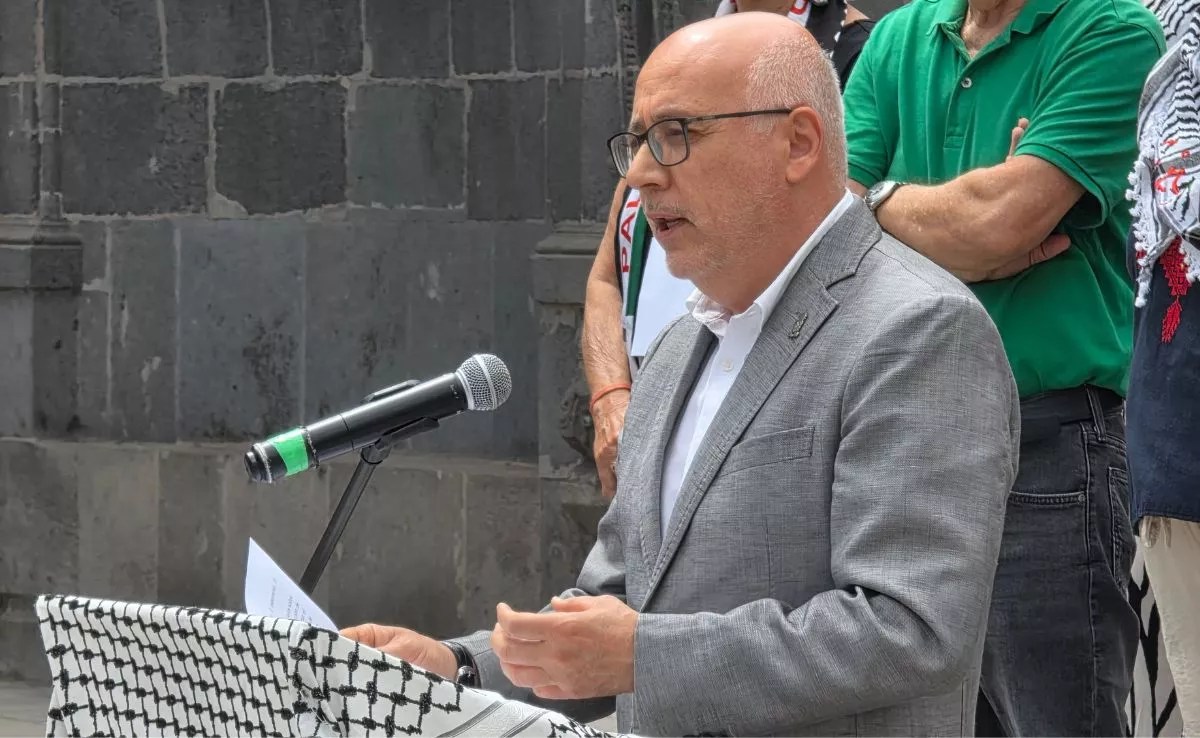The president of the Cabildo, the socialist Pedro Martin, announced in the recent plenary session of budgets the creation of 551 new social and healthcare places on the island of Tenerife by 2022. Residential care, both for the elderly and dependents, is one of the great objects of controversy, in addition to being a thrown weapon, between the island government team and the nationalist opposition.
The The process of approving the accounts for next year has reopened the debate. The total waiting list exceeds 7,100 people, as recognized by the island government team itself. While President Martín assures that “more than 1,500” places have been enabled during the mandate, Carlos Alonso, spokesman for the Canary Islands Coalition, sums it up in one sentence: “In three years they have not created a new one.” The nationalist has even publicly invited Marián Franquet, the Minister of Social Action, to “leave.” This has defended itself: “We have complied with those provided for in this mandate and with those not promoted by the Canary Islands Coalition in the previous one”,
“We have launched telecare, which did not exist before, for 749 users”
Pedro Martín insists that “The Cabildo has created 1,509 dependency positions in two years.” It also highlights the fact that “we have launched 749 telecare, something that did not exist.” He has announced, in this sense, that in 2022 “we will create 551 new health care providers who will join the previous ones to recover part of the work that was pending for other mandates.” Martín is advancing the construction of a new social health center in Arico for 3.5 million euros, plus another one already under tender in Santa Úrsula and a third in the medium term in La Orotava.
The president has also valued the 238,526,593 euros allocated to the IASS next year, 9% more than last year and an increase of 24% compared to 2020. Minister Franquet delves into this idea: «We have fulfilled the positions that were assigned to us by the Dependency Agreement for this year and with which we do not created in the previous mandate and left pending (CC) ». He adds another argument: «The long process of the pandemic of the Covid-19 it has affected the socio-sanitary centers in terms of income and in everything that has to do with the protection of people’s health ”. He defends that “the IASS has been exemplary in managing the pandemic and I regret that CC is not able to assess the good work of its professionals.”
“The infrastructure works that we have already planned in 2019 have stopped”
In the antipodes
The view from CC is the opposite. Poses Carlos Alonso that «the government group has not created any new socio-sanitary position in the years at the head of the Cabildo. Not a single bed. They insist that “the low execution of the Socio-Sanitary Infrastructure Plan is alarming, to the point that not only have they not put into operation the projects that we left prepared in 2019, but they have paralyzed works that were already being carried out.” Alonso points out: «His only concern was to eliminate the Ansina program to leave the elderly without activities in the middle of the pandemic and lay off its more than 60 professionals ». Remember that «there are more than 7,000 people who demand a social health position, but the actions of the Institute of Social and Social Health Care (IASS) are paralyzed due to the mismanagement of Pedro Martín and Marián Franquet.
Carlos Alonso lists infrastructures in works such as the CAM in La Cuesta or the building promoted by the Association of Relatives with Dawn Syndrome “who are standing still.” And others like the residence of Guía de Isora, “finished but unopened.” He claims “to start projects already drawn up at once, such as those foreseen in Añaza, Arona, Granadilla or Garachico.”
Possible collapse
The health group Assembly 7 Islands denounced a few days ago, through a letter sent to the president of the Canary Islands Government, “The serious situation that we can find ourselves because more and more beds are occupied in public hospitals by social health patients due to the lack of places in residences”.
7 Islands Assembly points out that «We cannot have hospital beds occupied by patients who do not need healthcare because it has its consequences in hospitals. They calculate that “there are some 300 beds occupied in hospitals by social health patients declared in distress or whose relatives cannot take care of them.”
One platform for “another model”
The recently created Tenerife Platform for Relatives and Users of Residences requests “the improvement of the social health care system in Tenerife”, as well as “the protection of the rights of the elderly and dependents found in the centers of the Island.” They criticize the long waiting time for the recognition of the Unit and the obtaining of places, much higher than the average of the State, and denounce “the very important deficit of the same.” The Platform proposes “to replace the macro residences with other small ones, divided into living units of up to 15 users”. In addition to “establishing bodies for the participation of family members and residents in management.”
















